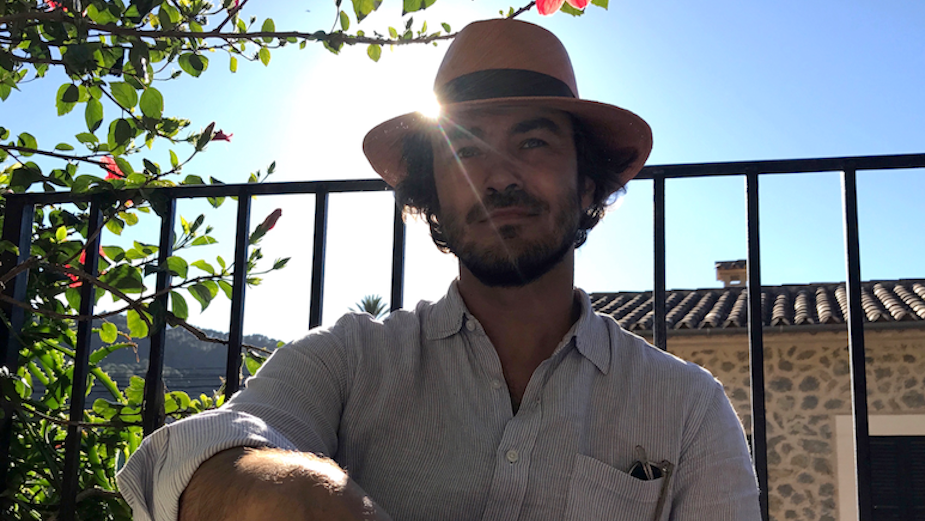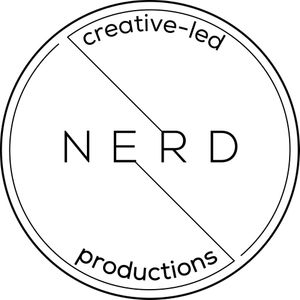
The Directors: Rafa Cortés

Director and screenwriter Rafa Cortés radiates an obsession with giving the highest degree of plausibility to all concepts, with stand-out realism and authenticity through his camera work. His strong attributes include storytelling, conveying real human emotion and hilarity.
Rafa’s feature film ‘Yo’ has received numerous awards, among them are the Revelation of the Year Award at the Cannes Film Festival, the FIPRESCI at the IFF Rotterdam and the Grand Prix at the Annecy Bienial. He has also collaborated with brands such as IKEA, Volkswagen, La Quiniela and PhotoEspaña.
Name: Rafa Cortés
Location: Spain
Repped by/in: NERD Productions
Awards: Golden Sol at the San Sebastian Advertising Festival, the Effectiveness Grand Prix granted by the Spanish Advertisers Association, the "Excellence in Advertising" Award at the Reina Sofia Modern Art Museum in Spain, the Wina, el Ojo... His first feature film "Yo" (Me) received the Revelation of the Year Award at the Cannes Film Festival, the FIPRESCI at the International Film Festival in Rotterdam and the Gran Prix at the Annecy Biennial, among others.
LBB> What elements of a script sets one apart from the other and what sort of scripts get you excited to shoot them?
Rafa> Scripts choose me! People who get in touch with me usually already know what I can do for their projects. That’s why I don’t usually get scripts that could be difficult for me to end up shooting. I feel lucky because this saves the agencies, my producers and me a lot of time used in unnecessary pitches. The scripts that catch my attention the most are those where I can really tell a little story and provoke emotions to the audience.
LBB> How do you approach creating a treatment for a spot?
Rafa> First and foremost, I print everything. I need to see a script on paper so I can draw on it, move things around. On the first day I never try to do anything with it, I just go away from my desk and spend some time with my family to let my mind relax trying to keep the project in the back of my head till the ideas start appearing by themselves. After that, I try to imagine what points of the treatment will help me explain what I would do with it. Mechanic typing comes then, I let everything I have flow naturally into the treatment.
What I don’t do is to start the process looking for references. It might be an ego thing, but I let my mind come to something on its own, look within myself. I, of course, can come to it naturally, although it might have already been created and it is perfectly normal. I do need references anyway, no matter how much I dislike it, because I need to find a way for the agencies and the clients to visualise my proposals. I still think it is good to come up with something on your own first.
LBB> If the script is for a brand that you're not familiar with/don’t have a big affinity with or a market you're new to, how important is it for you to do research and understand that strategic and contextual side of the ad? If it’s important to you, how do you do it?
Rafa> In my commercial work, I’m there to help sell a product/service, and to associate the companies and their brands to certain feelings or ideas. We always need to distinguish the brand from their competitors, how they’re different and how we can show it in the best possible and more effective way. There’s always a moment when I need to do some research, market research and also ask the agency/client some questions to help me understand where they are at and what they are looking for. The best way to get a genuine, interesting spot, is to make bespoke work.
LBB> For you, what is the most important working relationship for a director to have with another person in making an ad? And why?
Rafa> I think the most important is trust and collaboration, with everyone – producer, creative team, management, crew, etc. An important part of my job is to help solve their problems, read between the lines, and come up with the best ideas!
LBB> What type of work are you most passionate about - is there a particular genre or subject matter or style you are most drawn to?
Rafa> Fiction, storytelling, recreation of reality and anything that involves testimonials. Errol Morris is a director I look up to and I often think that I would feel at home facing a lot of the testimonial and commercials projects he has masterfully crafted.
LBB> What misconception about you or your work do you most often encounter and why is it wrong?
Rafa> One of my biggest frustrations is when people think there’s no script or mise en scene behind my work, that everything happened for real. My ability to make something that is fake seem very real is what I am also known for. But it is sometimes difficult to imagine that kind of work for people who haven't been following the process. They usually think I am lucky with getting a lot of real stories, told by 'real' people, when in fact, there’s a lot of hard work in writing scripts, casting actors and all other things. I’m mostly about fiction!
LBB> Have you ever worked with a cost consultant and if so how have your experiences been?
Rafa> I did, but it is usually my producers who deal with it.
LBB> What’s the craziest problem you’ve come across in the course of a production – and how did you solve it?
Rafa> It was one of my personal projects, a feature film. I had a scene with one very complicated and strong actor. He had to wear a gorilla mask, you can imagine, as an actor it might be quite frustrating. He got really angry because of something I didn’t really understand. He is German and he started shouting in German, so what I had to deal with was a person wearing a gorilla mask, shouting in the language no one understood and I was the person in charge, who had to fix everything. What did I do? I went up to him and said “Wait a minute, do you realise I have a gorilla shouting at me in a foreign language in the middle of a set, can you help me solve this?”. After a deep pause, he smiled, we both laughed and the conflict was resolved.
LBB> How do you strike the balance between being open/collaborative with the agency and brand client while also protecting the idea?
Rafa> In the commercial world, I really fight for finding the best possible idea that works for both me and my clients. The client knows the brand, I know filmmaking, and we create harmony of those things together.
LBB> What are your thoughts on opening up the production world to a more diverse pool of talent? Are you open to mentoring and apprenticeships on set?
Rafa> I tend to be open to anything that makes me see the world from new different angles, I like meeting new people and hearing different and sometimes controversial ideas. I have different friends, I have worked with different people and I am very happy that I am able to learn from people who come from a different background than I do.
Although, I do not specifically look for anything but my doors are always open!
I mentored quite a few people who are now directors and actors. I wish I had more guys like me when I started, a mentor who would advise and help. This is essentially why I am mentoring everyone who comes to me and needs my help.
LBB> How do you feel the pandemic is going to influence the way you work into the longer term? Have you picked up new habits that you feel will stick around for a long time?
Rafa> I wanted to think that this pandemic would make us better than we were, same with the economic crisis. I tend to be optimistic and I have learned a few things myself.
Working from home has certainly made us appreciate our loved ones more, as well as the change in work ethic. For me, it was no new working from home, I live in Mallorca and I do most of my work from there, so I was trained to work from home for years :D
LBB> Your work is now presented in so many different formats - to what extent do you keep each in mind while you're working?
Rafa> It depends on every project, sometimes you need to put more effort in one of the formats and create others to support the main point of the campaign.
Depending on the format you shoot it, you always need to remember those extras to make it work across all platforms.
LBB> What’s your relationship with new technology and, if at all, how do you incorporate future-facing tech into your work?
Rafa> I am a guy from ‘now’. As soon as something new comes out, I will be one of the first people to try it out. I was one of the first guys in Spain who started shooting with a RedOne camera, when people were afraid of digital video, and will be happy to continue to incorporate new technologies in my work as soon as they come.
With new technologies, we should always keep ourselves at the top of the game. For me, it is applying my unique ideas to this new technology, it gives you the advantage over others and I would suggest everyone to do the same.
LBB> Which pieces of work do you feel really show off what you do best – and why?
1. PhotoEspaña 2008 - Fiction presented as reality: It is my first campaign and I think it will always be my best.
2. 70s anniversary Football Lottery - Again, fake reality and some cinematic storytelling mix in the same campaign.
3. Nenuco commercial – I love working with kids













